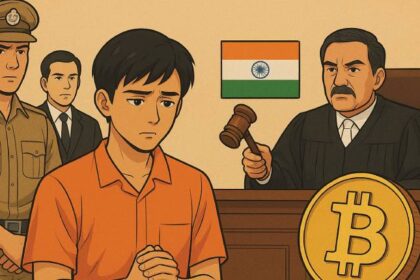WazirX Prohibited from Redistributing XRP Following Indian Court Ruling on Crypto Property Status
Crypto is defined as property with fiduciary protections by the ruling, which…
By Hardik Z.
Life Sentences Handed Down: Indian Court Convicts 14 in Bitcoin Extortion Scheme
A former BJP legislator and 11 police officials were convicted for the…
By Hardik Z.


